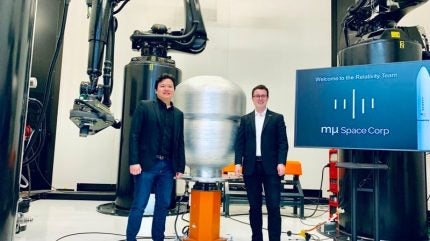
Relativity Space has signed a contract with Thai company mu Space launch a satellite to low-Earth orbit (LEO) aboard its Terran 1 3D-printed rocket.
According to the agreement, the company will launch mu Space’s LEO satellite, ‘a primary, dedicated payload’, in 2022.
Relativity is building an aerospace platform to integrate machine learning, software and robotics with metal 3D printing technology. This platform seeks to reduce the time taken to construct and launch rockets to days instead of years.
The company expects to build the Terran 1 rocket from scratch in less than 60 days.
Relativity and mu Space did not reveal the financial terms of the contract and the capabilities of the proposed satellite.
mu Space is involved in the development of space and satellite technologies to fast-track the adoption of Internet of Things (IoT) devices.
mu Space CEO and founder James Yenbamroong said: “mu Space is accelerating space technology development in Asia, and we consider the moon as the next explorable body in space beyond Earth.
“Relativity has the vision, team, and technology to deliver exceptional advantages in launching mu Space’s payloads, and supporting our goal of creating an interplanetary society in the future.”
The companies will also use the partnership to progress shared vision toward building the future of humanity in space.
Relativity aims to become the first company to launch a rocket on Mars using 3D printing technology.
Meanwhile, mu Space intends to enable human settlement on the moon within the next ten years.
Relativity Space CEO and co-founder Tim Ellis said: “We’re excited to partner with mu Space, a disruptive innovator in the Asia-Pacific region, to launch their satellite and space technologies with our 3D-printed Terran 1 rocket.
“We look forward to collaborating to strengthen the US and Asia-Pacific space economy, and to advancing the future of humanity in space together with James and the entire mu Space team.”
Relativity recently reached an agreement with Telesat to launch multiple satellites for a broadband constellation.
The company stated that it is on track to perform its first test flight towards the end of next year.


